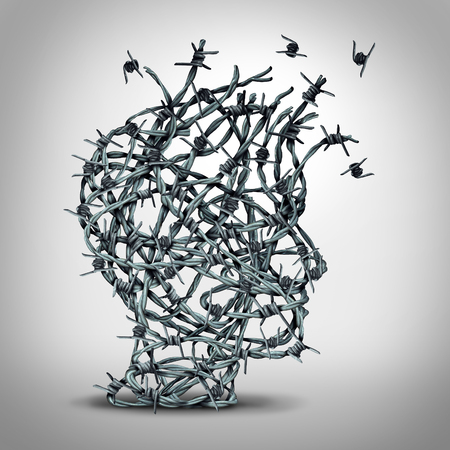If you love a man with anger problems, you have probably felt hurt and overwhelmed by his behavior at times. Maybe you wonder if you could have done something to prevent the angry outburst. Maybe you feel responsible to control or pacify his temper. Women who are married to men with anger problems can feel desperate for them to change but powerless to do anything about it.

Anger can feel scary, mean, and even threatening. When a woman feels the full force of her husband’s anger, a deep abandonment, coupled with fear occurs in the psyche. This abandonment/fear mechanism inside a woman can have a traumatizing affect leaving her with primal response of fight/flight/freeze. If you’ve ever been in this situation, you know the feeling I mean. You realize how utterly vulnerable you are to the man you love and who you trust to love you back.
When I see couples where the husband presents with anger problems, I try to understand exactly what’s going on. Sometimes, the anger is really a secondary response to other untreated problems. The untreated problems have been stuffed, hidden, repressed, and denied for so long, they turn into unpredictable anger outbursts affecting the family and the marriage.

The Problems that Masquerade as Anger
- Untreated ADD: people with Attention Deficit and Hyperactivity Disorder often have difficulty with emotional and mental self-regulation. When uncomfortable emotions are experienced, people with untreated ADHD often lack the inhibitory capacity to censor emotional reactions. Combine impulse control with rage and you can see how this could be a big problem.
- Untreated Anxiety: When I am treating a man with an anger issue, I often find that anxiety is their root problem. I like to explain anger as anxiety’s stunt double. The anger is the emotion that gets the most attention, but behind the quick temper, the agitation, and the volatility, anxiety is in the driver’s seat. They report feeling keyed up, stressed out, sleepless, worried, out of control, fearful, and even panicked. Identifying and treating the anxiety can offer a lot of relief to both the man and his family.
- Post Traumatic Stress Disorder: Trauma or life-threatening events can cause upsetting memories, hyper arousal, increased agitation, distrust, and negative changes in one’s thoughts and beliefs. Trauma causes a person’s response to threat to become stuck. So when normal stressors come along, they react with “full activation,” as if their life were threatened. This automatic anger response can create serious problems on the job and at home.
- Addiction: People can become addicted to many substances and activities like marijuana, alcohol, sex and gambling. When people become dependent and begin to abuse these mood altering drugs, they lose the ability to self regulate. The addiction becomes a sickness, and the need for the next high drives the person into acting ways he normally wouldn’t. Rage, denial, deceit, defensiveness, blame, and physical violence are all indicators that use has turned into abuse.
- Narcissistic or Sociopathic Personality: Men who have pervasive disregard for how their actions affect others, marked with hostility, recklessness, aggressiveness, deceitfulness, lawlessness and abuse for personal pleasure. These personalities can often make people believe the best in them or feel sorry for them, pulling people in just to take advantage of them. This type of personality will use his anger to manipulate, threaten, scare, control and dominate without care for who he hurts along the way. They leave a wake of relationship wreckage, broken trust, and a past with immoral and even criminal activity. These men with anger problems are particularly dangerous because they prey on those they see as weaker, and are not bound to social or moral norms or conscience.

If you are married to a man who struggles with anger, it is important for him to seek support to learn to regulate his emotions. When anger is driving a man to say and do things that hurt other people, serious consideration needs to be made about seeking help. Counseling, support groups, trauma therapy, medication treatment and meditation are all ways for men struggling with anger to learn new coping strategies. You don’t have to endure out of control anger or fear provoking rage. It is important to seek help immediately.
If you are married to a man who uses anger to manipulate, control, or threaten, be careful. These are dangerous tendencies that you need to recognize as abusive. Getting support to help you know your options and keep yourself safe is very important. Click here for next steps. Anger is a normal feeling that all people have, and is necessary for healthy functioning. However, when anger gets out of control, boundaries and accountability are needed to keep safe and secure.








